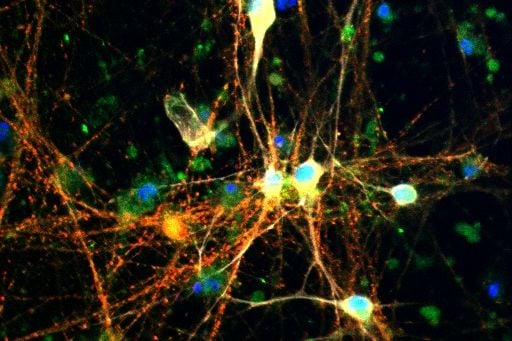
What’s Ahead for Alzheimer’s Drugs in 2025
Learn about 2025’s newly approved or potential Alzheimer’s drugs. These include Leqembi, Kisunla, Remternetug, Semaglutide, Trontinemab and Bepranemab.

Learn about 2025’s newly approved or potential Alzheimer’s drugs. These include Leqembi, Kisunla, Remternetug, Semaglutide, Trontinemab and Bepranemab.

Leqembi and Kisunla are the new Alzheimer’s immunotherapies. A loss of brain volume associated with these immunotherapies may be caused by the removal of amyloid plaques, rather than the loss of neurons or brain tissue. A new study sheds light on what’s going on.

PRODUCT OF THE WEEK: Caregivers love this pill box, as do patients and professionals. Simply fill it once a month. Roomy, simple, ingenious.

Europe originally said Lecanemab (Brand-name Leqembi) was too risky to approve. Now they are recommending marketing it. Why the change of heart?

The European Medicines Agency (EMA) recommended approving Leqembi® (generic lecanemab) for Alzheimer’s. Originally skeptics, learn how the “Clarity AD” trial helped change their mind.

Leqembi is an FDA-Approved Alzheimer’s treatment. Hospital infusions take an hour each. 2025 is looking to see a new 15-second autoinjector version. For some, it should even work at home.

Why are some of the new anti-Alzheimer’s antibodies better than others? With the FDA’s approval of Lecanemab and Donanemab, it’s worth staying on top of this topic’s latest research.

The 2 newest Alzheimer’s drugs, Leqembi (lecanemab) and Kisunla (donanemab) show promise, but many questions remain. Here are the three next ones.

Right now, there are two FDA approved drugs to treat Alzheimer’s itself. Find out why Remternetug may soon get approval as a third, even better treatment.

Kisunla, the newest Alzheimer’s drug, is rapidly gaining acceptance around the world. Learn what it does and how to get it.

Berkeley researchers reveal deep sleep might protect memory—even in the face of Alzheimer’s. Could your nightly rest be the brain’s best defense?

A new Buck Institute discovery reveals neurons process sugar in a surprising way— and unlocking this “brain sugar” pathway could lead to powerful Alzheimer’s treatments.

Why Do Babies Have More Alzheimer’s Protein Than Adults? A Surprising Clue to Future Treatments

Three important dementia studies focus on HS-AGING, a type of dementia almost as common as Alzheimer’s in the 85+ group. Yet few people have heard of it. Why? What makes it different?

An intriguing study of 120 grandmothers might surprise you. Doctors know socially engaged people have better cognition and less dementia. But can a person get too much of a good thing? What’s the right balance?

Enjoy this great duet between a musician with dementia and his son. A triumph of spirit over Alzheimer’s! Sing-a-long if you like!

It looks like a sneeze cannot give anyone Alzheimer’s. While Alzheimer’s abnormal disease proteins do spread from cell-to-cell, they are not “infectious”. Check out the facts.
No spam, only news and updates.